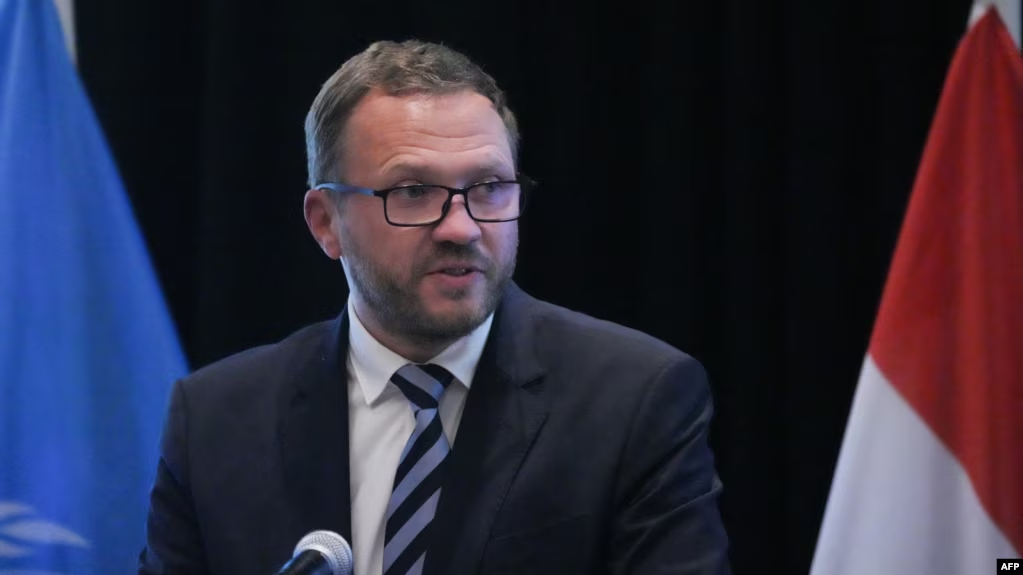WARSAW — Estonia has sanctioned more than a dozen top Georgian officials, including Prime Minister Irakli Kobakhidze, in response to what it described as a «criminal» crackdown on pro-European protesters in Georgia, Foreign Minister Margus Tsahkna announced on Sunday.
Crackdown on Pro-European Demonstrations
The Georgian government’s response to ongoing protests has drawn widespread condemnation from international observers and human rights advocates. Demonstrators accuse the ruling Georgian Dream party of undermining democracy and steering the country closer to Russia, distancing it from its pro-European aspirations.
Police have used water cannons and tear gas to disperse the protests, while security forces have raided opposition party offices and assaulted journalists and opposition lawmakers.
“The violence perpetrated by the authorities against protesters, journalists, and opposition leaders is criminal and against human rights,” Tsahkna said, calling for coordinated action from other European Union nations via a statement on X (formerly Twitter).
Escalating Political Crisis
The sanctions announcement follows the controversial installation of a hard-right loyalist and former Manchester City footballer as Georgia’s president by the ruling Georgian Dream party. The opposition boycotted the election process, citing a deepening constitutional crisis.
Protests, which have swelled since Georgian Dream claimed victory in October’s elections—widely denounced by the opposition as rigged—intensified after Kobakhidze’s abrupt decision in late November to halt Georgia’s negotiations to join the European Union.
This move directly contravenes a constitutional mandate that prioritizes EU membership, a goal supported by an estimated 80% of the Georgian population, according to polls.
Estonia’s Actions and Regional Implications
Along with Latvia and Lithuania, Estonia had already imposed travel bans on several Georgian officials. Among those sanctioned were Interior Minister Vakhtang Gomelauri and billionaire Bidzina Ivanishvili, widely regarded as the de facto power behind Georgian politics.
Estonia’s latest measures reflect mounting frustration in the EU over Georgia’s political direction and human rights violations. Tsahkna urged other EU nations to take similar steps, highlighting the need for a unified European response.
Tensions Between Georgia and the EU
Georgia’s turn away from the EU has heightened concerns among European leaders and further isolated the Black Sea nation amid its ongoing political unrest. Critics accuse Georgian Dream of eroding democratic institutions, while its recent actions have fueled fears of a tilt toward Moscow.
The nightly protests underscore the growing rift between the Georgian government and its citizens, as well as the potential for deeper instability in a nation that has long been a geopolitical battleground between East and West.
Descubre más desde Polimatía TemisEdu
Suscríbete y recibe las últimas entradas en tu correo electrónico.


